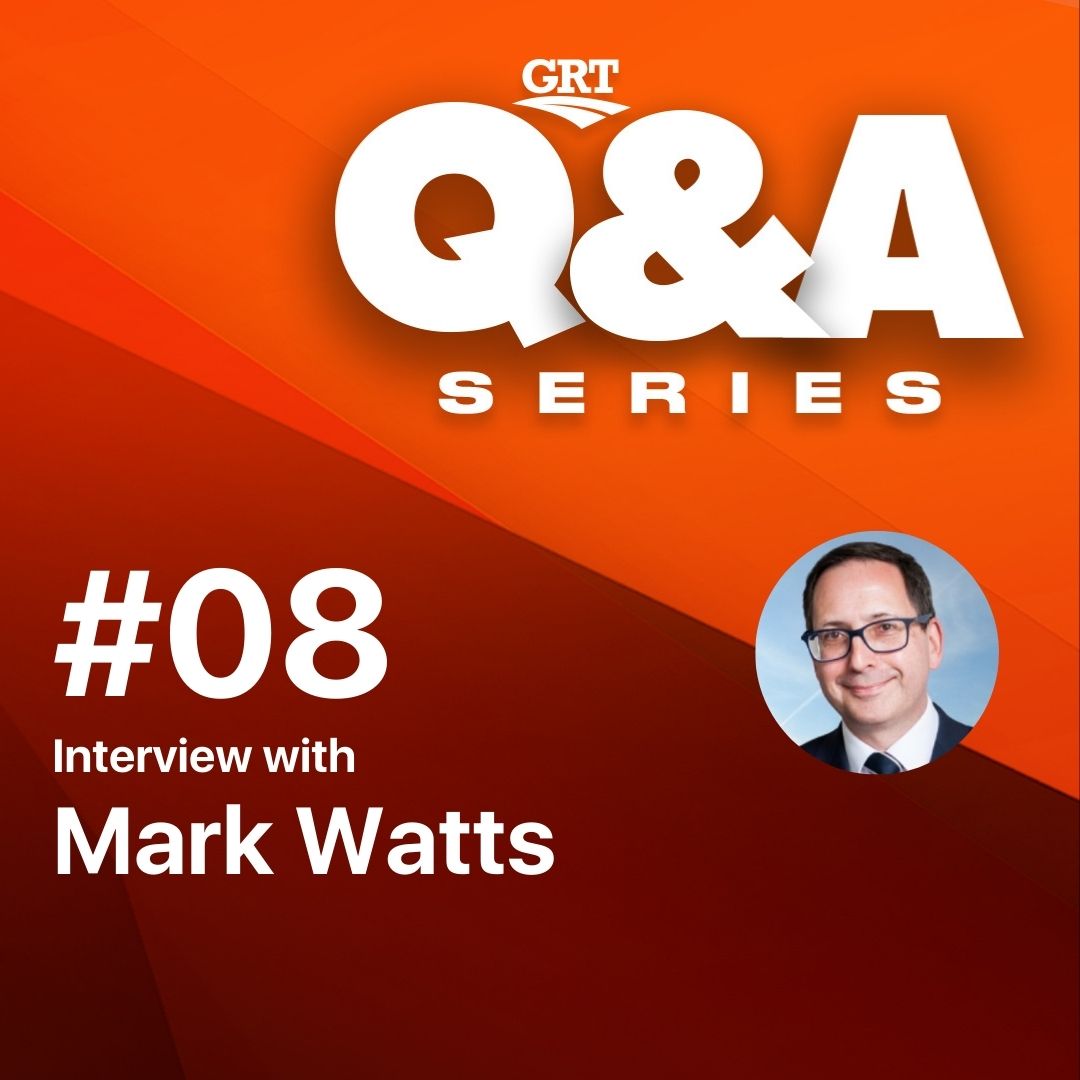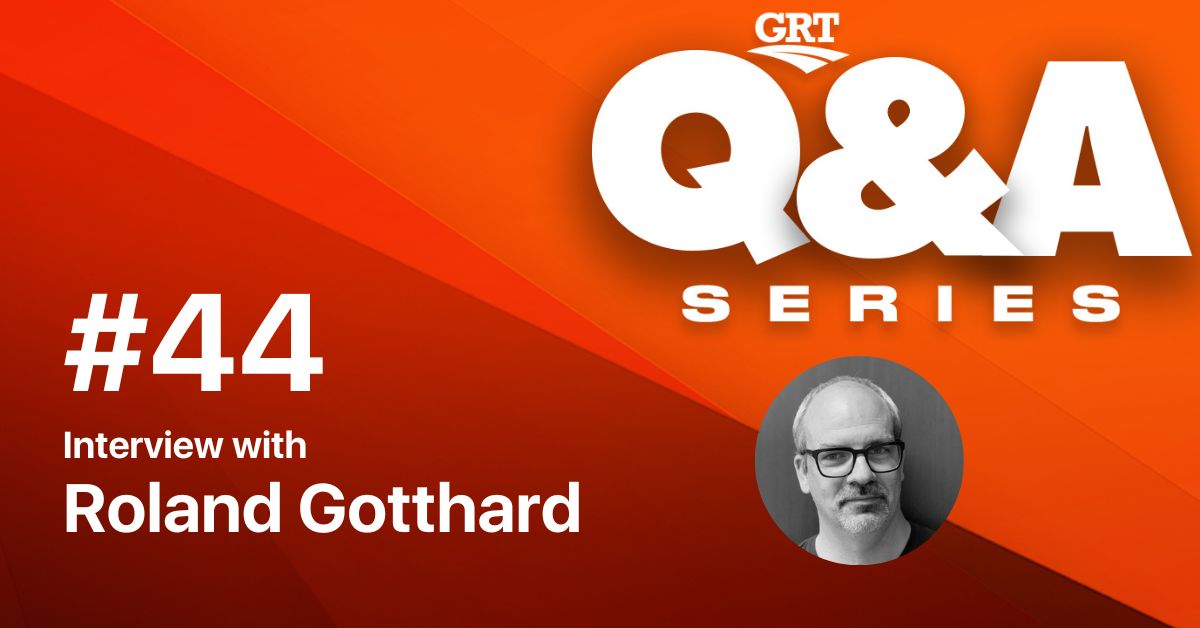Q&A Series #08: Interview with Mark Watts

About the guest
Mark was elected Member of the European Parliament for two terms, and co-founded LP Brussels in 2009. He provides strategic counsel to some of the world’s most well-known companies and organisations, & regularly speaks and moderates conferences and events. He has worked at senior levels on transport policy and regulation for over 25 years, and specialises in the interface between transport, energy, environment, and economic regulation and policy.
In recognition of his outstanding public service he was elected a Fellow of the Royal Society of Arts. In 2021 he was elected a Chartered Fellow of The Charted Institute of Logistics and Transport.
The topic of discussion: COP26 and the future of the transport industry
21% of global carbon emissions come from the transport industry accounts and it is now the largest emitting sector in many developed countries. Historically, Europe and North America dominated transport emissions, but it is forecasted that much of the growth in emissions is in Asia. Road transport accounts for 10% of global emissions, and its emissions are rising faster than those of any other sector. Pledges towards zero emissions on ‘Transport Day’ of COP26 came from road, air and sea freight industries. However, some of the world’s biggest carmakers failed to sign zero emissions pledge at UN climate talks. So, what is the future of the transport industry beyond COP26?
In this article, we learn more about COP26 and the future of the transport industry from Mark Watts FCILT FRSA, an EU analyst, Transport, energy and environment specialist, Former 2 term MEP, Co-founder LP Brussels, Chief Executive of UK Transport in Europe (UKTiE) and Chartered Fellow of the CILT and Fellow of the RSA.
Mark was a member of various Parliamentary Committees. As testimony to his success, and above all his ability to build consensus and deliver successful campaigns, Tony Blair appointed him to be his Government’s transport and better regulation spokesperson in Brussels. He served on the TRAN Committee of the European Parliament for 10 years. Mark studied at the LSE (BSc and MSc Econ) and was a two-term Member of the Council of the University of Kent.
1. Can you tell us more about the twists and turns of the big climate and transport policy day in Glasgow?
I always believed COP26 would be a stepping stone not a destination and that was correct. But the UK Presidency deserves credit for reaching a consensus that takes the world nearer to the goal of tackling the climate crisis. Overall the respected ‘Climate Action Tracker’ calculates that after COP26 we’re on course for a temperature rise between 2.4°C and 2.7°C, compared to a predicted 3.6 °C rise after Paris in 2015. Real progress, around 1.0°C, has been made. But there still remains a 1.0°C gap. We could have done better, but unfortunately the conclusion was undermined by India and China, particularly in relation to coal. In fact the US-China Joint Glasgow Declaration on Enhancing Climate Action in the 2020s, adopted on the 10 November, used that ‘phase down’ not ‘phase out’ wording in relation to China, effectively sealing the fate of COP26 in relation to fossil fuel elimination. As for the success of Transport Day, good progress was made on accelerating the transition to 100% zero emission road vehicles. Many, but not all, nations committing to a ban on the sale of fossil fuel car and vans by 2035 in leading markets and making them the ‘new normal’ by 2030. There was also positive action agreed on the need for a wider transport system transformation, including support for active travel and public transport. On aviation and shipping whilst there was good progress, with the Clydebank Declaration on Green Shipping Corridors and the International Aviation Climate Ambition Coalition Declaration, there is still a lack of detail. In particular there is no clear decarbonisation pathway for aviation and shipping in the coming decade, essential if we are to keep the global temperature rise to less than 1.5°C.
2. How big a contribution must transport make if we’re to reach our climate goals?
Transport represents almost a quarter of Europe’s greenhouse gas emissions and is the main cause of air pollution in cities, a similar percentage to transport emissions across the globe. The transport sector has not achieved the decline in emissions achieved in other sectors: emissions only started to decrease in 2007 and still remain higher than in 1990. In fact it is the only sector where emissions are higher than they were in 1990. So it is hugely important that trend is reversed, otherwise all the efforts in other sectors will be undermined, and we will get nowhere near meeting the 1.5 °C goal. So transport has a key role in delivering our climate goals and is more than capable of delivering in time and in full.
3. What can be done to accelerate the transition to 100% zero emission cars and vans?
The COP26 Declaration on Accelerating the Transition to 100% Zero Emission Cars and Vans was a tipping point in my view on the road to the complete abolition of the fossil-fuel combustion engine. Within 10 years electric cars will be the new normal, and most leading markets will only allow the sale of zero emission vehicles. Not everyone signed up to this Declaration, but many leading nations, regions, cities, auto manufacturers, business fleet owners and operators, shared mobility platforms, investors and financial institutions did. They will create the necessary momentum. All the stakeholders must now to held to this commitment, and in particular we need government intervention through changes to the tax and subsidy regimes to transform the affordability of zero emission vehicles to sustain the momentum, and ensure none of our citizens and communities are left behind.
4. What is at ‘stake’ if agreements and MOUs from COP26 are not followed through?
The very survival of a liveable planet is at stake if COP26 is not followed through. The latest Intergovernmental Panel on Climate Change (IPCC) Report published in August spells out the dramatic and hugely negative consequences for our environment, economy and society if we fail to act. We’ll be handing our children and grandchildren a toxic planet in rapid decline in every respect. Not just irreversible environmental damage but also irreversible damage to our democratic systems, with consequential threats to our freedoms, human rights, peace, stability and human progress.
5. How will the Global Methane Pledge boost LNG as a marine fuel?
Stronger regulation of methane emissions will create more certainty for the shipping industry regarding LNG’s positive emissions benefits. The Global Methane Pledge is yet another step towards the recognition of the importance for measurement of greenhouse gas (GHG) emissions from all marine fuels on a well-to-wake (WtW) basis, including carbon dioxide, methane, and nitrous oxides. Comprehensive WtW measurement is the only way to accurately compare the viability of future fuels in a decarbonised shipping industry, and will spur the use of LNG. LNG coupled with the growth of bioLNG and renewable synthetic LNG will be capable of providing the air quality and carbon free future we all now see as essential for the maritime sector.
6. What are some of the key challenges faced in implementation of the EU Green Deal?
In many respects Europe is a global leader as a result of the European Green Deal, and the EU Climate Law. But the ambition to become the world’s first climate neutral continent is to be achieved largely through regulation, not market based measures or strategic goal setting. That’s both a strength and a weakness. It may well get Europe there, but the legislative process to bring about the regulatory change is slow and cumbersome. It inevitably involves compromise, and the delay and uncertainty may stifle innovation . The next ten years are key to delivering the European Green Deal, and ensuring politicians do not lose their nerve. Businesses, communities and citizens will have to increasingly speak out, and act more decisively to drive the change themselves, to hold their politicians to account. All the evidence suggests that it is already happening.
7. Moving forward, what is your forecast on the delivery of actionable pledges from Paris, Glasgow and beyond?
The pint is half full or half empty, depending which way you look at it. We’ve got 1°C closer to our goal, but have 1°C to go. We’ve achieved that in six years, think of what we can and must achieve in the next six. The difference now is that 6 years ago many were sceptical about the climate crisis. Now those voices have changed because their minds have changed, or they have fallen silent under the weight of evidence and in light of recent global climate catastrophes. I’m confident over the next six years we will build on the momentum of the last six, but the momentum will be turbo-charged by changing political and public attitudes. Not just NGOs and progressive politicians are demanding action to tackle the climate crisis, but mainstream parties, small, medium and global firms, and citizens, young and not so young, who are demanding and driving change. I’m confident 2030 is going to become the new 2050.

Keith Nare
Technical Head of Communications for GRT, Keith leads GRT's content strategy across various platforms, whilst coordinating internally to build the voice and opinions of the GRT team. Keith is a product of Nelson Mandela University and his PhD work focuses on Polymer and Physical Chemistry. He was a Research Associate at SANRAL in South Africa and later spent time as a Visiting Research Associate to NTEC at the University of Nottingham in the UK. He is a former Director of Communications for CALROBO in the USA.
Keith is passionate and enthusiastic about health and safety, sustainability, networking and finding synergy through conversations.
Related Interviews
MORE INDUSTRY ARTICLES
Nothing found.









